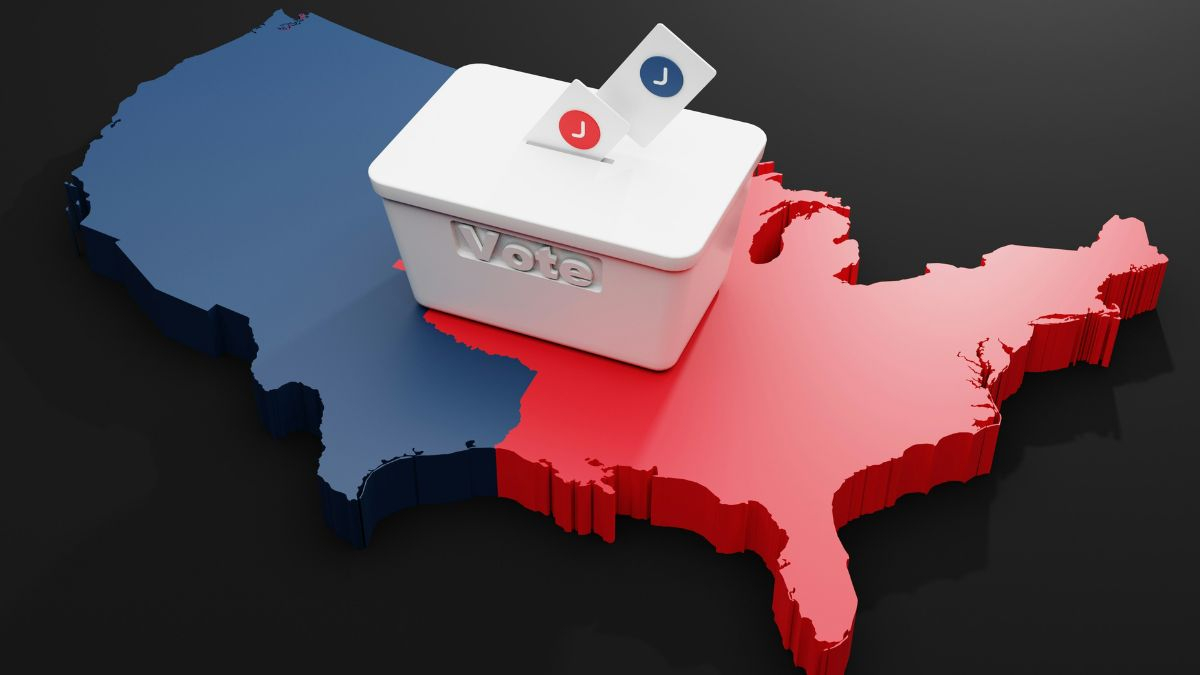The 2024 US Election is a critically deciding event that will determine the nation’s leadership for the next four years. This year the main candidates are the incumbent President Joe Biden of the Democrats, who is facing former Republican president Donald Trump.
While some people will vote for Biden in the upcoming elections, others will rally around and pledge their support to Trump. The total votes each candidate gets is their popular vote, and that is very important, but an interesting feature of the U.S: presidential election is that it is a body calledthe Electoral College that actually determines who emerges as president. The votes are what determine the make-up of this Electoral College. Let’s have a look.
What is the Electoral College?
Although the word college is more normally associated with its meaning as a place of learning, a college can also mean a group of people tasked with a particular duty or task. In the Electoral College in the US presidential election, these people, called electors, are responsible for electing the president and vice president of the United States.
Electors that make up the Electoral College are citizens deemed informed and impartial enough to make wise decisions during elections. This system was designed to balance the influence of small and large states, creating a fair electoral system.
The Electoral College is made up of 538 people that gather every four years, a few weeks after the general elections to select the President and Vice President.
Each state has the same number of electors as its senators and representatives. That is, the number of electors in the Electoral College represents the total number of representatives and senators in Congress, plus 3 electors from the District of Columbia.
How and when are electors chosen?
Electors in the Electoral College only serve temporarily during the election period; their role begins on the election day and end after they cast their votes for President and Vice President.
Choosing electors happens in two parts:
- First: political parties’ central committees in each state choose party electors by a voting. Political parties usually choose electors based on their dedication to the party. In the end, each Presidential candidate has their own unique slate of potential electors before the election.
- Next: voters vote to select state electors.
After voters cast their votes during elections, these votes are tallied in each state to decide which candidate got the most votes in that state, meaning every state gets a winning Presidential candidate. Automatically, a winning Presidential candidate’s slate of potential electors is appointed as the state’s electors. This is a winner-takes-all situation. The winning candidate in a state gets all the electors for that state.
An exception to this is Nebraska and Maine where the state’s winning candidate receives two electors and the winner of each congressional district (who may be the same as the overall winner or a different candidate) receives one elector. This system permits Nebraska and Maine to award electors to more than one candidate. These states have a proportional approach rather than the winner-takes-all of the other states.
How does the Electoral College process work?
- After the public casts their votes on election day, electors meet in their respective state capitals on the first Tuesday after the Second Wednesday in December to vote for president and vice president. Their votes are then compiled and sent to Congress for counting.
- On January 6th, Congress holds a joint session with the House of Representatives to count the votes. The outgoing Vice President presides over the session and if there are no objections, the results are certified and the President-elect and Vice-President-elect are confirmed.
To win the presidential election, a candidate needs the vote of at least more than half of the electors, that is at least 270 votes.
If there are any objections to the results of the electoral votes, Congress members can file objectives in writing. The Senate and House of Representatives then separate to debate and cast another vote on the objection. If there is a tie in electoral votes with no candidates having a majority vote, the House of Representatives vote again to elect the President, with each state delegation casting one vote, and the Senate elects the Vice President.

